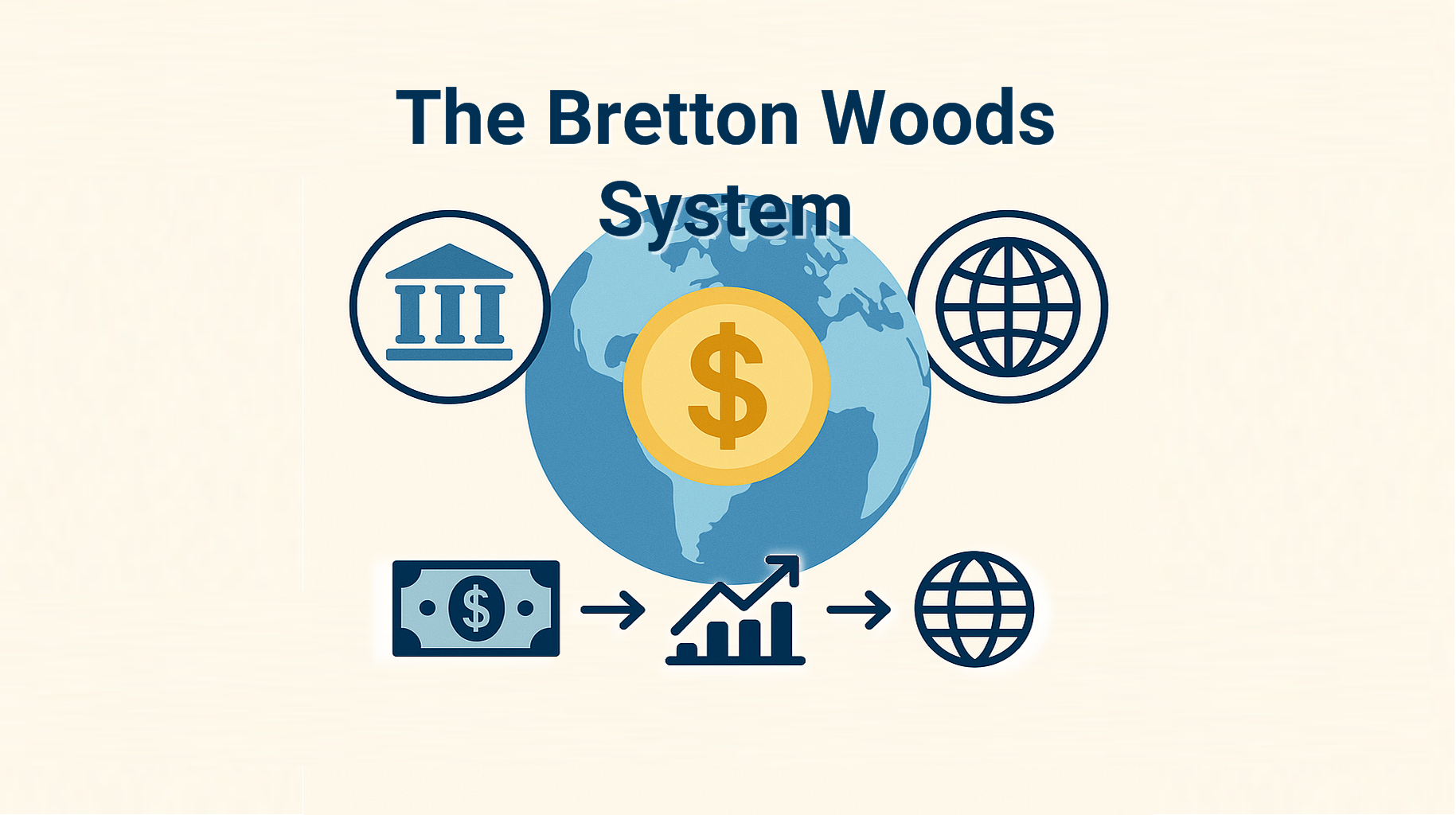In July 1944, as World War II neared its end, 44 nations gathered in Bretton Woods, New Hampshire, to design a new global economic system. The result? The Bretton Woods Agreement—an ambitious framework that reshaped global finance and created the economic world we live in today.
The centerpiece of the system was a fixed exchange rate regime where currencies were pegged to the U.S. dollar, and the dollar was convertible to gold at $35 per ounce. This gave the dollar a central role in international finance and helped establish the U.S. as the world’s financial leader. Two new institutions were created: the International Monetary Fund (IMF) and the World Bank, which were designed to stabilize economies and rebuild war-torn nations.
Though the gold convertibility ended in 1971, the influence of Bretton Woods never disappeared. Today’s financial system still reflects its architecture:
- The U.S. dollar remains the world’s reserve currency, used in over 80% of global trade.
- Global lending and crisis management are still funneled through the IMF and World Bank.
- Countries continue to depend on U.S. monetary policy, affecting inflation, interest rates, and capital flows worldwide.
SO WHY DOES THIS MATTER TODAY?
Because control over the global financial plumbing equals influence over geopolitics. Nations that rely on dollar-based trade are sensitive to U.S. sanctions, interest rate changes, and economic decisions. It’s why many countries—especially emerging powers—are exploring alternatives: bilateral trade agreements, digital currencies, and even gold-backed systems.
As investors and professionals in finance, understanding the legacy of Bretton Woods helps us see the big picture:
- Why inflation and interest rates in the U.S. ripple across global markets.
- How political tensions with China, Russia, or the Middle East have financial consequences.
- Why global diversification and currency awareness are more important than ever.
FINAL THOUGHTS
The Bretton Woods system may have ended formally, but its impact remains embedded in the foundations of the global economy. Staying informed about its influence helps us make smarter investment decisions in a rapidly shifting world.









